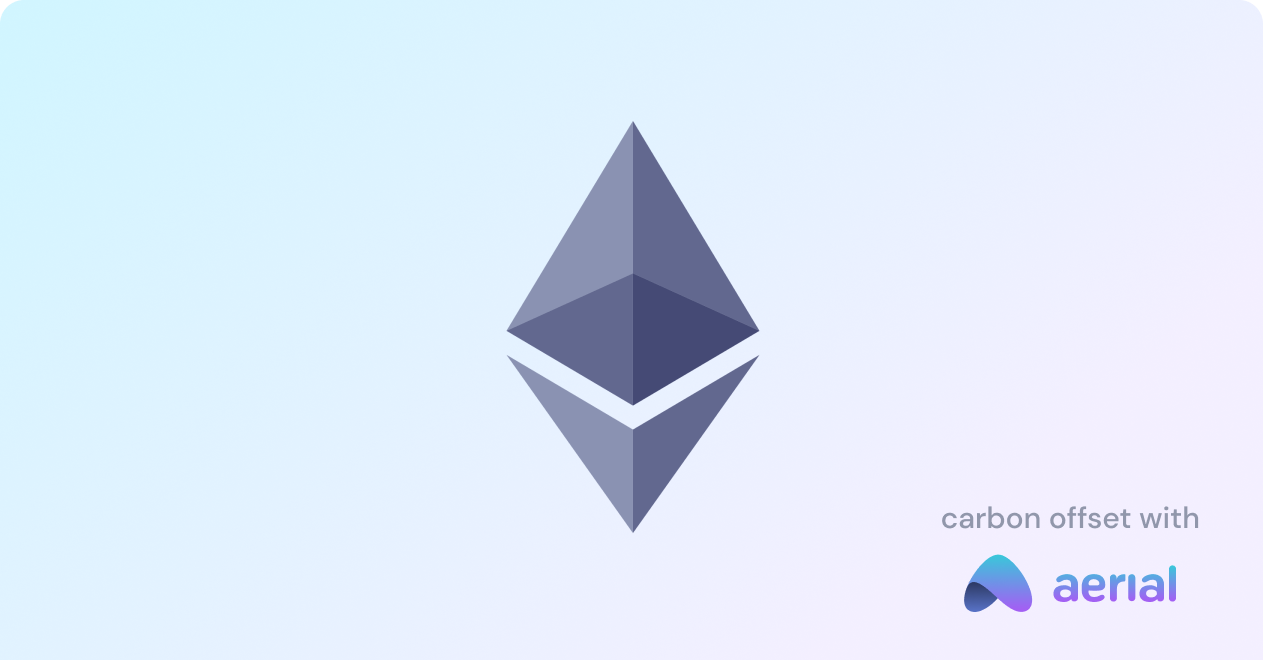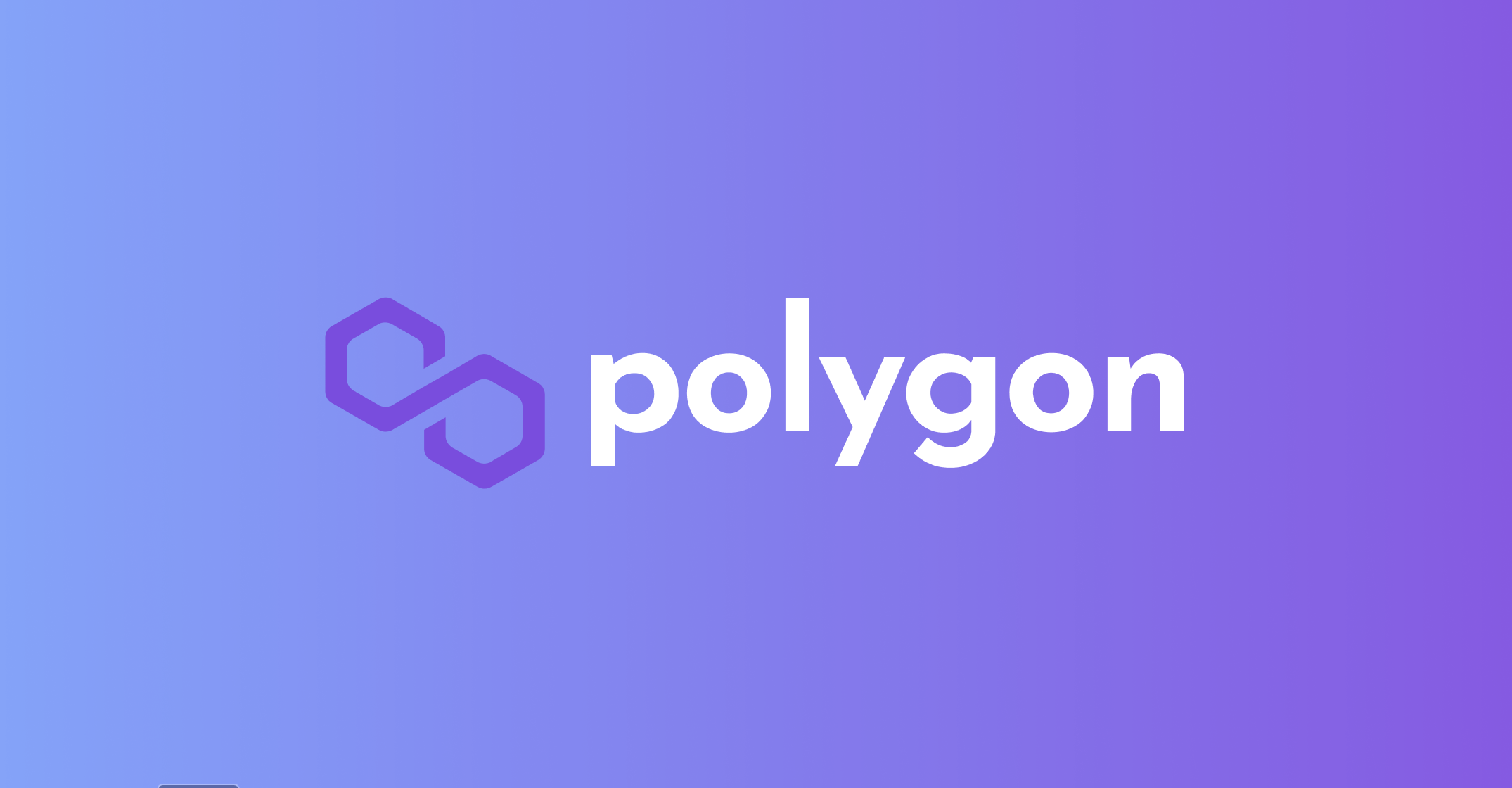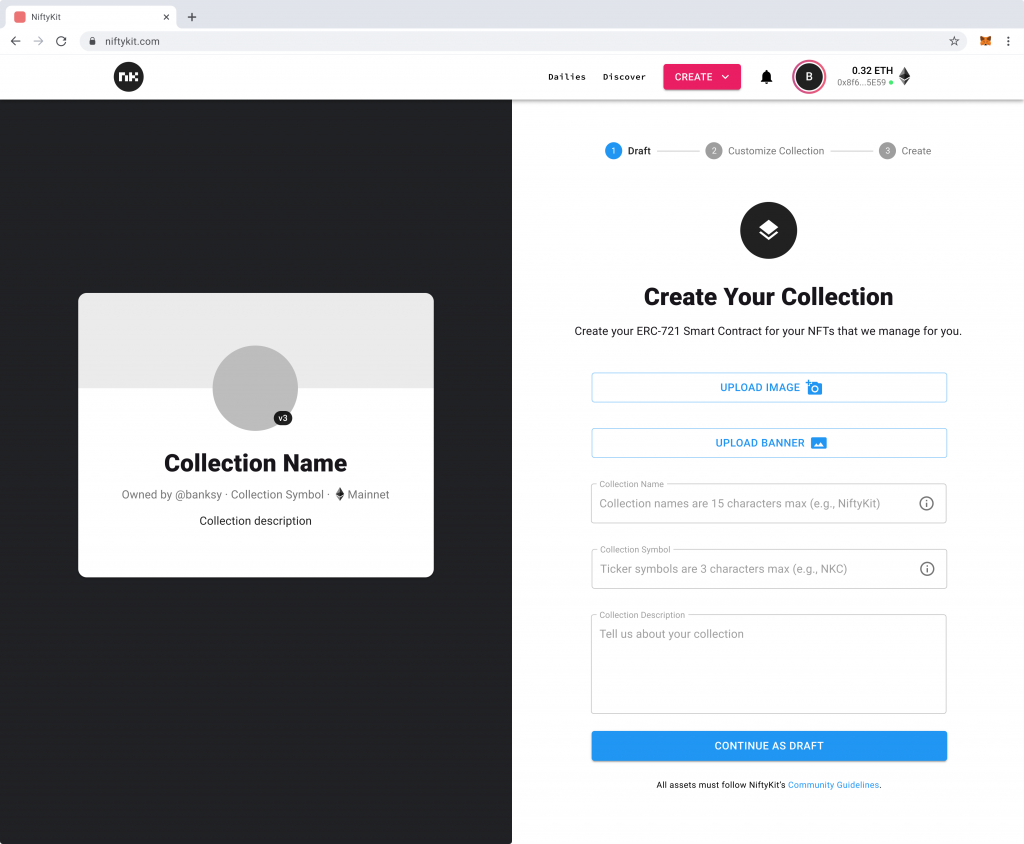What is a Smart Contract and Why Do I Need One?
NFTs are stored in “smart contracts,” which are executable code that executes automatically and runs on top of the distributed ledger on which the NFT is recorded.


NiftyKit has 2 types of smart contracts you can create:
- Ethereum Mainnet
- Polygon (previously Matic Network)
Provable ownership of art, music, and other digital and physical content is linked to a single token and contains provenance information to ensure collectors are buying authentic NFTs from the creators.
Other people may have copies of the same content, but only one person can own the token through their digital wallet.
NFT collectors and artists can verify using blockchain explorers like Etherscan to ensure the authenticity of any NFT being bought or sold.
Create A Smart Contract For Your Brand
You should not have to pay 10’s of thousands of dollars for a developer to create a smart contract for your NFTs.
NiftyKit has made it easy for you to create a custom branded whitelabel smart contract for your NFTs.
Below you will see our simple Smart Contract builder that will allow you to create your Smart Contract.
To create your custom smart contract you will configure these fields:
- Upload an image to represent your custom collection
- Upload a banner to show and promote what your collection is about
- Collection Name is set as the official name of your collection once your smart contract has been created. You cannot change this once it has been created on the blockchain.
- Collection Symbol is similar to a stock ticker symbol for your collection. This cannot be changed once the Smart Contract has been minted.
- Add a Description to let everyone know what your collection is about.
Choosing Polygon vs. Ethereum Mainnet for your NFTs
NiftyKit offers subscribers the option to create Ethereum or Polygon smart contracts. Let’s take a quick look at some differences to help us choose which blockchain to mint your next NFT on.

Ethereum Mainnet
Ideal For: Committed Minters

More Popular Blockchain
Ethereum is the second largest cryptocurrency to Bitcoin, but popularity comes at a price.

More congestion = Higher overall cost
Higher gas prices and slower transaction processing times.

Easier to resell NFTs
Supported on Opensea, Rarible, and Cargo App

Costly climate impact - for now*
Until Ethereum 2.0 is released, Proof-of-work (PoW) transactions are costly and put an increase carbon emissions.

Polygon/Matic
Ideal For: Budget and earth-conscious pioneers

Most cost-effective
Small but might layer-2 blockchain with growing audience and support

Less congestion = Cheaper overall cost
Lower gas prices and quicker transaction times
Lower gas prices and quicker transaction times

